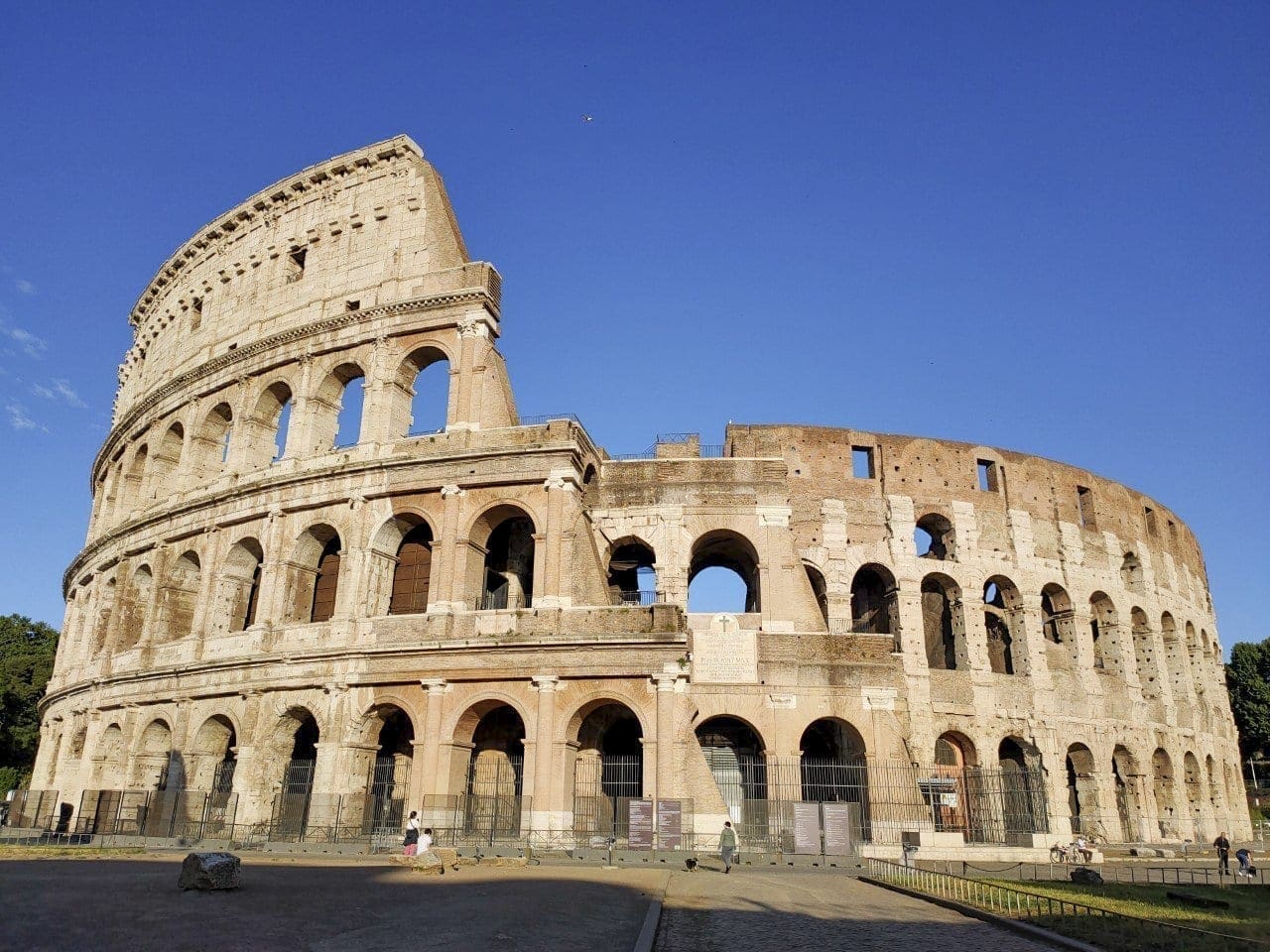We asked our authors and our network to answer three questions on how they are coping with this challenging moment in history. Here is the interview with MARTINA MARINI, journalist and author of DooG Reporter.
Is there any beauty in the world, even mundane, that you have rediscovered in this time?
I am a lifelong Roman, it seems, and for those born in this city, beauty education should be more natural. But during this time, I got to know and feel my city for the first time, and for the first time, I felt so strongly a desire to protect it that I did not want to share it with anyone.
I was privileged to see my Rome Resting, to be able to hear the sound of the roaring water of Trevi fountain even a few meters before crossing the square, to see the Colosseum and the Arch of Constantine almost deserted, to feel the cold marble of the Spanish Steps under my buttocks, to admire the sunset‘sur blond Tiber‘ without traffic, and to listen to grandparents telling their grandchildren the story of the Pantheon.
The first time I stepped onto the “sampietrini”, Rome was like spying on it. She, like those women who are beautiful like this and who have nothing to add, is embellished by their manner or smile. Behind a curtain, I saw her secretly dancing a solo, shy… but free, shining and wild… pandering, irresistible, as if she were venting all the frustrations of the evening cast and representation. It is something incredible.
Instead, that show was just for me, for us!
Melancholy is the feeling that most represent me. Again, in a forthcoming return to normality, my Donna Roma will wink at me in memory of the show she dedicated to us alone during this challenging time. And it would be up to everyone not to forget the beauty and care for it.
How do you think your profession has changed or will change?
During this time, I have put myself ‘in the window‘ in many ways. I am not one who had to find myself or went into crisis because they were shut in. I took this period to slow down, observe, listen, and ask myself questions to which I am still searching for answers. Practically zero shooting. Because to say photography and social distancing is an oxymoron. I observed who was doing it. I noticed, of course, many new food photographers and many who, within their walls or from their terraces, tried their hand at creating exciting but, in my opinion, self-serving points of view. I don’t know if there will be significant transformations. But, still, the task and duty of photography, all the more so now, must be to continue to tell stories, to give voice to those who cry out and are not heard, and to bear witness to those changes that are likely to be more evident in the coming months.
A picture, a book and a song that represent this period for you.
An image to which I am very attached, a gift from my dearest friend Francesca, and which has kept me company in this lockdown is Salgado’s portrait of a woman from the Himba tribe. It is said that the women remained alone in the village, assuming all power over them, when the men left for long transhumances. Salgado surprises her in her solitude, in the suspension of the present moment.
A song I like is Lucio Dalla’s Futura, which tells us that love for the Other and hope can save us despite the walls and difficulties.
One of the books I have been reading these days is Rust by my colleague and friend Cristian Umbro. An intimate and delicate, frank and funny book. Which tells the story of Ruggine (Ruggiero Taracchi), a 30-year-old Roman bus driver. Rust has always been a metaphor for change imposed by nature, by the flowing time. As in our case. In its lightness, it is a novel that makes us reflect on the passage of time and how this time is committed… whether to let the rust compact more and more until our fears, remorse until we become more and more immobile, or to take charge of our lives and leave space for the possibilities of happiness. In antithesis to the beauty I rediscovered, of course, here in the background, we find the ‘heart-rending normality‘ of the albeit ‘eternal and irreplaceable‘ Rome.


